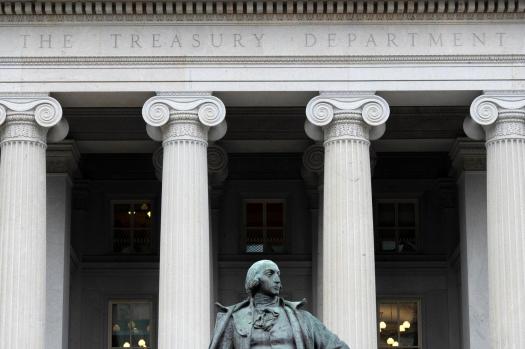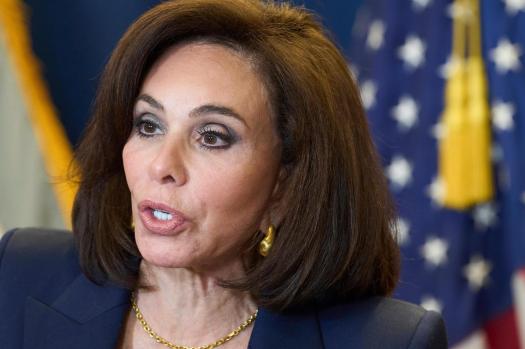By MEGAN JANETSKY
CITY OF MEXICO (AP) TheU.S. Treasury Departmentslapped sanctions Wednesday on three Mexico-based financial institutions it said were used to launder millions of dollars for cartels, in a move officials say would block certain money transfers between the sanctioned banks and U.S. banks.
Related Articles
-
One more sizzling hot day for the eastern US before temperatures plunge 30 degrees
-
Nestle says it will remove artificial dyes from US foods by 2026
-
Boulder attack suspect indicted on additional federal hate-crime, explosives charges
-
Once named opponents in the Supreme Court case that legalized same-sex marriage, now they re friends
-
California official criticized for appearing to call on gangs to intervene in immigration raids
The orders issued on the banks CIBanco and Intercam Banco, as well as brokerage Vector Casa de Bolsa, are part of an ongoing push by U.S. and Mexican authorities under pressure byU.S. President Donald Trumpto crack down on Mexican cartels that traffic fentanyl.
Deputy Treasury Secretary Michael Faulkender told reporters on Wednesday that the banks have been instrumental in helping cartels based in Mexico launder millions of dollars and facilitate payments for the purchase of precursor chemicals needed to make fentanyl.
According to Faulkender, the actions would essentially prevent the bank branches from conducting business with financial institutions in the United States.
Requests for response from the three financial firms were not immediately answered.
It was not immediately clear, however, how far-reaching the effects would actually be.
The Treasury orders said CIBanco and Intercam had each facilitated transfers to two U.S. financial institutions, and Vector had facilitated a transfer to one, but Treasury officials would not name which U.S. institutions were implicated nor provide more details.
Officials also did not rule out the possibility of foreign branches of the banks outside of Mexico being able to continue to do business with U.S. banks.
According to the Treasury orders, CIBanco helped facilitate money laundering for a number of cartels, including theJalisco New Generation, Beltran Leyva and Gulf. Officials claimed that by handling more than $2.1 million in payments for the items, the bank made it easier to import ingredients needed to produce fentanyl from China.
Vector was accused of facilitating money laundering for the Sinaloa and Gulf cartels, including $1 million in payments for fentanyl chemicals. The Treasury officials also said that Vector was used by theSinaloa Cartelto send bribes to former Mexican Security Secretary Genaro Garc a Luna, who was sentenced to more than 38 years in prison by a New York court in October for the charges. Transactions totaled more than $40 million, they estimated.
Similar allegations were brought against Intercam, who was alleged to have facilitated the transfer of $1.5 million in payments for Chinese ingredients used in the production of fentanyl.
The orders were just the latest actions by the Trump administration, which has announced it was cracking down on Mexican cartels and fentanyl trafficking, despite movement of the drug along the border and overdoses within the U.S. already being on the decline.
As part of the endeavor, the administration has sanctioned 31 individuals since Trump took office and designated numerous cartels as Foreign Terrorist Organizations this year.
Go to https://apnews.com/hub/latin-america to follow AP’s coverage of Latin America and the Caribbean.












